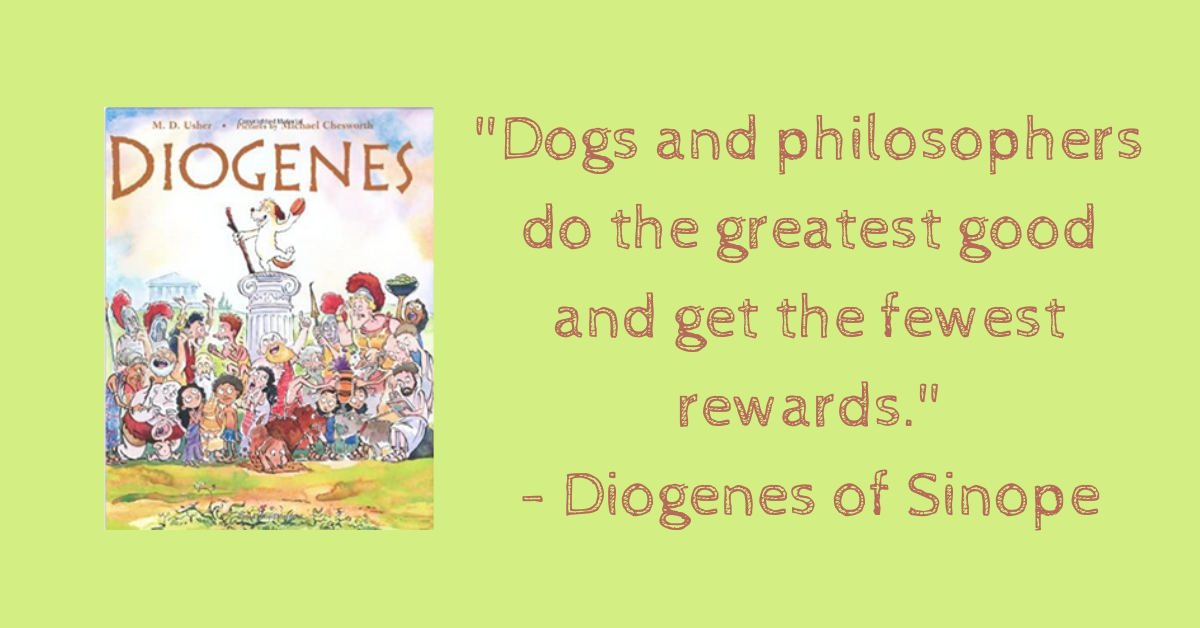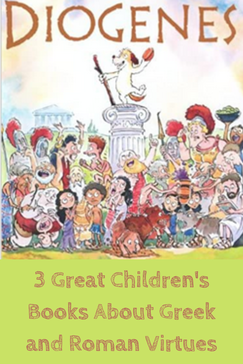While there are many fabulous fiction and non-fiction children's books about Classical antiquity, most focus on mythology or history. Those subjects are excellent in their own right, as knowledge of history and myth help us put things in historical context and allow us to dream.
However, with this list, I am especially focused on children's book that teach Classical virtues like courage, justice, moderation, and wisdom, and which illustrate how we can aspire to become a person of character. These 3 books help kids learn about important Greek and Roman virtues:
1. Tales of the Greeks: Children's Plutarch
Tales of the Greeks: Children's Plutarch, published by Yesterday's Classics, is a translation of Plutarch for younger audiences, originally adapted in F. J. Gould in 1910, when there was more of a focus on Classical education.
I recommend this book for readers who share Plutarch's sentiment that children need virtuous heroes as examples to look up to. While there are some courageous and wise individuals in the public eye today, there are many more celebrities, politicians and public figures who aren't particularly virtuous or very good role models. Moreover, we don't seem to look at virtue enough when we pick our heroes.
Note that, while one might take issue with presenting someone like Alexander (a conqueror) as a hero, there are many other figures included in the book for their peaceful contributions to civil society. Children will also get a taste for Greek history as well.
The complexity level is appropriate for younger children, however, there are some depictions of war and injustice that might be upsetting, so I would recommend this book for children ages 7 and up, maybe even 8 and up if your child is especially sensitive.
2. Tales of the Romans: Children's Plutarch
Other figures include Crassus, Marius, Pompey, Caesar (same objections here as with Alexander so I usually skip over this one) Cato the Younger (a somewhat Stoic figure) and many others.
Like Tales of the Greeks, the book is appropriate for ages 7 or 8 and up.
3. Diogenes
The Cynics were ascetic philosophers of the Classical World. All that mattered to them was the practical applicability of wisdom. They were not concerned with theory and taught by the example of their lives, making a virtue of austerity, wit, and counter-culturalism. They were quite eccentric, often going barefoot and living outside, which is where they picked up the moniker Cynic - based on the Greek word for dog. The most famous Cynic was Diogenes of Sinope, who was fond of saying "Dogs and philosophers do the greatest good and get the fewest rewards."
This book features a cartoon dog who, like it's philosophical inspiration, wants people to think for themselves, and emphasizes moderation and wisdom. Here is the description from the publisher:
Most dogs in this world are content with their doggy lives, playing dead and burying bones, but Diogenes was a dog of a different sort – he wanted to become his own master. So he buried his collar and leash, left his cozy doghouse, and ran off to the great city of Athens, Greece. There he took upon himself the role of “watchdog” to those around him, warning of life’s moral pitfalls and showing by his own surprising example the path to an enlightened way of being.
Rounding out this colorful picture book biography about a revolutionary thinker, a two-page author’s note about Diogenes elucidates the connection between the book’s doggy hero and the historical figure, who became a pauper in order to live like a king.
I highly recommend Diogenes for children 5-10 years old.
~
*This post contains Amazon Associate links. If you buy a book, I may earn a small commission.
Read next:
Creating Your Ideal Family Culture
Virtue Rewards Chart for Kids Printable
9 Great Critical Thinking Books For Children and Teens











